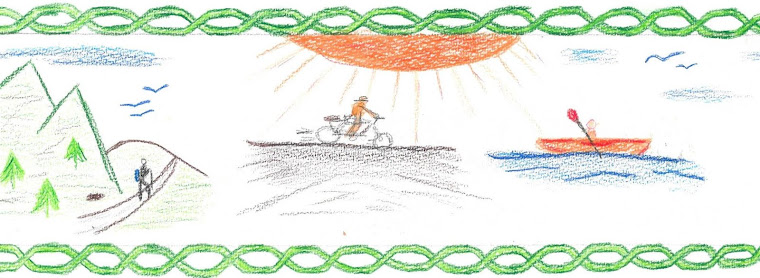Lectionary Ruminations 2.5 is a further revision and refinement
of my Lectionary Ruminations and Lectionary
Ruminations 2.0. Focusing on The Revised Common Lectionary Readings
for the upcoming Sunday from New Revised Standard Version (NRSV) of the Bible, Lectionary Ruminations 2.5 draws on over thirty years of pastoral
experience. Believing that the questions we ask are often more important
than any answers we find, without over reliance on commentaries, I intend with
sometimes pointed and sometimes snarky comments and Socratic like questions, to
encourage reflection and rumination for readers preparing to lead a Bible
study, draft liturgy, preach, or hear the Word. Reader comments are invited and
encouraged.
2:1-12 How much does this reading influence our understanding of
the Transfiguration and inform our interpretation of Mark
9:2-9? Can we read Mark 9:29, in part, as Midrash on this reading?
2:1 What is a
whirlwind? Is there any significance to the fact that Elijah and Elisha were on
their way from Gilgal? What was the relationship between Elijah and Elisha and
are people in the pews aware of their relationship? Does their prior
relationship influence or inform of interpretation of this text?
2:2 What is the
significance of Bethel? Why might Elijah have wanted Elisha not to follow him?
Why was Elisha insistent of accompanying Elijah?
2:3 Who are the
company of prophets (see 2:5 as well)? Why did Elisha bid them to keep
silent?
2:4 Note the repetition
of “stay here” and “as you yourself live” as in 2:2. Is there any significance
to Jericho?
2:5 What do you know
about Jericho? Note again the pattern of repetition, as in 2:3. Did every town,
like Bethel and Jericho, have a company of prophets?
2:6 What do you know
about the Jordan? Why this travel narrative? Why this continuous pattern of
repetition and parallel structure, 2:2-3/2:4-5/2:6-7?
2:7 Is there anything
significant or symbolic about the number fifty?
2:8 What is a
mantel? Is this a Midrash on Moses’ parting of the Red Sea?
2:9 What is a double
measure of spirit? Can prophetic spirit be willed or inherited? I would
settle for half of Elijah’s spirit.
2:10 Does Elijah have
the power to grant this request or does this power rest with God? Why the
emphasis on seeing? How does this “seeing” inform our understanding of the
Transfiguration?
2:11 Why does a chariot
of fire and horses of fire appear? What is their relationship to the
whirlwind? Note the appearance of fire in Psalm 50:3.
2:12 What are “the
chariots of Israel and its horseman?” Why did Elisha tear his clothes in two?
Did Elisha inherit a double portion of Elijah’s spirit or not?
Psalm
50:1-6
50:1 Does God not
summon from the setting of the sun to its rising? How does the LORD, the mighty
one, speak and summons today?
50:2 What is perfect
beauty? How does God “shine?” Would you have connected this verse with the
Transfiguration if it had not been for the lectionary?
50:3 Does this verse
alone, with its “fire” and “mighty tempest,” justify this Psalm being
paired with the First Reading? See 2 Kings 2:11 and 2:1
50:4 Who are God’s
people?
50:5 Are we to assume
from the First Reading that, at the time, only Elijah was faithful? Who
initiated the covenant, God or the people?
50:6 How do the
heaven’s declare God’s righteousness? Are images from the Hubble Space
Telescope in any way Icons? I always ask the following question when “Selah”
appears: how do you deal with it? Do you read it. Do you skip over it? Do you
in any way interpret it?
2
Corinthians 4:3-6
4:3 Is our gospel
veiled? What sort of veil is Paul talking about? Who are perishing?
4:4 Who, or what, is “the god of this world?” How does this verse
illuminate our understanding of the Transfiguration and inform our
interpretation of the Gospel Reading? How might “Illuminated Manuscripts” like
The Book of Kells and the St. John’s Bible illuminate our understanding of this
verse?
4:5 Why does Paul even
have to write “For we do not proclaim ourselves?” Was someone accusing his of
self promotion?
4:6 Where in Scripture
did God say “Let light shine out of darkness?” Consider Genesis 1:3.
Mark
9:2-9
9:2 Six days after
what? What else once happened after six days? Why does Jesus always seem
to take with him Peter, James and John? What is the meaning of the word
“transfigured?” Why am I thinking of Franz Kafka?
9:3 Was this in the
days before Clorox and/or OxiClean? Have you ever seen anybody dressed in
dazzling white?
9:4 Why Elisha and
Moses? What do they represent and/or symbolize? If you had to pick
two people from the Jewish Scriptures to appear with you, whom would you pick?
What do you think they were talking about with Jesus?
9:5 Why might Peter
have wanted to build three dwellings?
9:6 Note that Peter
(singular) did not know what to say, for they (plural) were terrified. Have you
ever been terrified? Is it human nature to sometimes make small talk, or even
stick one’s footin one’s mouth, when terrified? Might Rudolph Otto help us
interpret this verse?
9:7 What does the
cloud represent? Where and when have we heard something like this before?
9:8 What just
happened?
9:9 Why would Jesus
order Peter, James and John not to tell anyone about what they had just
seen? What do you know about Mark’s “messianic secret?” Why is “Son of
Man” used here but not earlier in this account? Why do Peter, James and
John have to wait until after the resurrection to tell people about what they
experienced?
ADDENDUM
I am a Minister Member of Upper Ohio Valley Presbytery of the Presbyterian Church (U.S.A.) and am serving as the Pastor of the Bethlehem United Presbyterian Church, Wheeling, WV. Sunday Worship at Bethlehem begins at 10:45 AM. Here is Bethlehem United's Facebook address: https://www.facebook.com/Bethlehem-United-Presbyterian-Church-102482088303980
